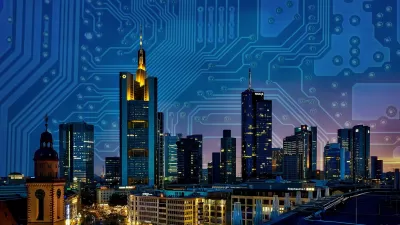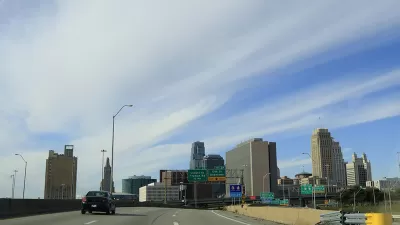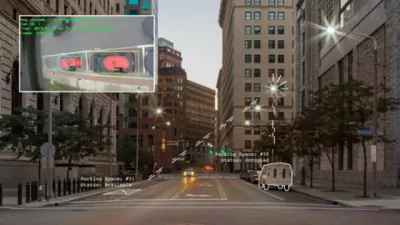Technology is infiltrating every aspect of our lives, but, according to this article, we shouldn't underestimate the nefarious role it plays in urban spaces.

"The 'smart city' is not a coherent concept, let alone an actually existing entity. It’s better understood as a misleading euphemism for a corporately controlled urban future," argues Jathan Sadowski. The grand visions of the connected city are part of a narrative created by corporate interests to convince planners, city officials, and the public that the challenges facing cities can be solved through the adoption of omnipresent technological systems.
But the smart city is really the captured city, says Sadowski, where collection of data and surveillance of physical space are prevalent. Urban policing is one example of how the private sector runs the show from behind the scenes:
The most powerful upgrades to urban surveillance used to come primarily from the Departments of Defense and Homeland Security, but today, corporations like Amazon roll out systems that the FBI and CIA would have literally killed to install. (Now they can just pay a monthly fee for access.) Amazon’s networked doorbell camera Ring and its associated Neighbors app are an example.
Sadowski believes some people will creatively resist the totalitarianism of social and technological infrastructure of the captured city, but a meaningful resistance will need go further. "It will require us to target with ruthless criticism the producers and users of surveillance systems, the supply and demand for urban control. It will require us to know our enemies and name them as such."
FULL STORY: The Captured City

Planetizen Federal Action Tracker
A weekly monitor of how Trump’s orders and actions are impacting planners and planning in America.

Congressman Proposes Bill to Rename DC Metro “Trump Train”
The Make Autorail Great Again Act would withhold federal funding to the system until the Washington Metropolitan Area Transit Authority (WMATA), rebrands as the Washington Metropolitan Authority for Greater Access (WMAGA).

DARTSpace Platform Streamlines Dallas TOD Application Process
The Dallas transit agency hopes a shorter permitting timeline will boost transit-oriented development around rail stations.

Supreme Court Ruling in Pipeline Case Guts Federal Environmental Law
The decision limits the scope of a federal law that mandates extensive environmental impact reviews of energy, infrastructure, and transportation projects.

Texas State Bills to Defund Dallas Transit Die
DART would have seen a 30% service cut, $230M annual losses had the bills survived.

Bikeshare for the Win: Team Pedals to London Cricket Match, Beats Rivals Stuck in Traffic
While their opponents sat in gridlock, England's national cricket team hopped Lime bikes, riding to a 3-0 victory.
Urban Design for Planners 1: Software Tools
This six-course series explores essential urban design concepts using open source software and equips planners with the tools they need to participate fully in the urban design process.
Planning for Universal Design
Learn the tools for implementing Universal Design in planning regulations.
Roanoke Valley-Alleghany Regional Commission
City of Mt Shasta
City of Camden Redevelopment Agency
City of Astoria
Transportation Research & Education Center (TREC) at Portland State University
US High Speed Rail Association
City of Camden Redevelopment Agency
Municipality of Princeton (NJ)




























